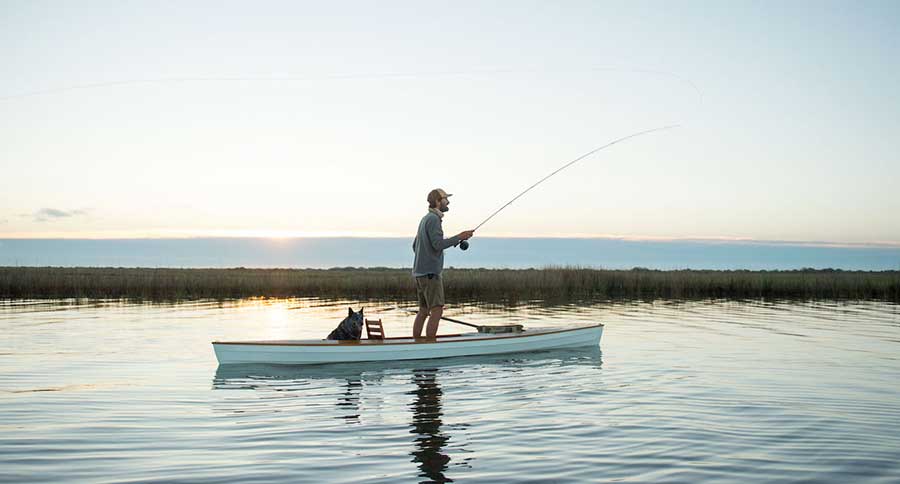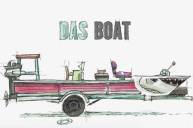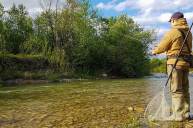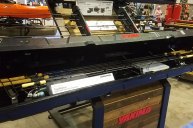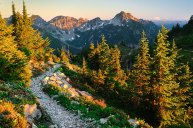JT Van Zandt says we aren't doing enough to make a change to our destructive habits, and it's pretty tough to disagree after speaking with him.
Any outdoorsman or woman will tell you that there comes a time when you recognize the fragility of the landscapes and wildlife you enjoy connecting with. You've heard it before, but maybe not from JT Van Zandt.
There's something about the way the fly fishing guide and fifth generation Texan explains the pressing need for preserving our natural resources that sticks with you.
"I really don't think there's a huge house on the hill as a prize anymore," he said. "It's evident to me that really the goal is to live as simply as you can, and as un-impactful in a negative way as you can, in terms of your resources and your environment. I think the end of the road now, is like, let's just roll your recycle tub to the curb, overfilled with plastic bottles, and different produce containers, and freezer containers. In order to really be happy, in the deepest level of your consciousness, I think you've got to be, if not making things better around you, then at least not impacting things any further in the wrong direction."
https://www.instagram.com/p/Bp0keniDhE3/
His words stuck out to me during our recent conversation, and felt some guilt set in. Yeah, I roll my recyclables out to the curb, unsure how far they'll make it in the actual "recycling" process, and I'm not fully aware of what I'm doing. Instead, I passively write it off as "doing my part."
The guilt I felt began to shift to motivation throughout our talk, as I asked the son of Texas singer/songwriter Townes Van Zandt about some of his favorite wild places, his gig as a fly fishing guide on the Gulf Coast, and what we ought to be doing to stop "the annihilation of our resources."
Van Zandt should be using his position to raise awareness for his passions, and not just because of the time he spent on his grandmother's rural Texas property as a youngster or because of his last name. JT is a bonafide Texas conservationist: He's participated in ambassadorships with Texas Parks and Wildlife Foundation (the state fish and game agency's fundraising arm), gone through the Texas Game Wardens' Citizens Academy, and serves on the state's Saltwater Fishing Advisory Board.
"I just can't believe the seas can produce what we see on our seafood counters. How on earth can everything keep up to what our demand is these days? It's just fascinating," Van Zandt commented. "I try not to get stuck on that, because if I'm not on the water, I'm trying to shoot a feral hog with my bow and arrow. And I don't even care if I get one, I just want to understand them better. I want to get somewhere I can sit and watch them, you know? I want the opportunity for them to come through the area I'm observing, and just get a glimpse at a few of those...We have an added sense of responsibility based on how fortunate we are."
What's most enlightening about JT Van Zandt is his bigger picture perspective. Sure, he mentioned things like the commercial claiming of coastal areas where clams or oysters are publicly harvestable, destroying the odds of finding any after it's cleared out. He talked about the jacked up pickup with black smoke coming out of the tail pipe as it "hauls ass after a light." That's the sort of stuff that really grinds his gears. And because he sees the oyster beds and the pickup in equal measure, he understands that thinking about the environment can start anywhere, whether you're on the road or holding a rod.
"We don't have an excuse anymore," Van Zandt told me. "Our forefathers had an excuse. We didn't know smoking in a cafe was bad for everyone else. Now we know that! So if you're the person who wants to do that, it just means you're a spiteful, not nice person!"
https://www.instagram.com/p/BukFiz6jrNq/
Twenty minutes into our conversation, I couldn't help but ask if he'd thought about writing a book. It seemed like he has three or four inside of him based on what I'd already heard.
"No, it takes way too much time away from fishing and hunting," he quickly replied. "I dig what you're saying, but I try to live that book vividly. It's a combination of my modest, quiet, humble little gramma on my mom's side who lived on that country land. And the words of my father's songs, in my brain, translated into a way of living. I think he brought a lot of beauty forward and that made a huge impression on me. And I don't think he really had a chance to live his life according to his work. I have the great fortune of being impacted by him and a bunch of other completely unknown, modest country people. In my mind, it all plays together. Yeah, you try hard to live your life that way, and at the same time you find it hard to conserve and protect those resources, or you can't stay out there and live!"
It's safe to say he's tapping into something important that more people need to latch on to.
His work guiding fly fishing trips on the Texas Middle Coast has given him the kind of life methodology that connects him to some of his favorite wild places.
"I don't push real hard across the globe," Van Zandt said. "I'm just looking for a place where the pressure's off. Where you're just in the element. Usually I feel most comfortable on the places I've spent the most time exploring."
That place has, for the most part, been Texas. There's little wonder. His great-great-great-grandfather was an original son of the Republic of Texas, and there's a county named after the Van Zandt family about 50 miles east of Dallas. His father is, by many accounts, known as the most influential Texas songwriter of his time.
This is his home, and he's got "a lot of redfishing to do" before he goes anywhere else.
But then again, he's noticing even more things that don't receive the level of outrage he feels they deserve. Like the heavy industrialization on the Texas coast, which he thinks could be an end-all, be-all dealbreaker if some changes aren't made.
https://www.instagram.com/p/BnkQrPqnPA3/
"I would advise anybody who's got any interest in seeing the coast of Texas stay the way it is, to get in, dig in, right now. Get involved, or risk losing or ever even seeing it," he warned.
I could have made the determination, after hearing him say those words, that there was no hope for Van Zandt. He could try all he wanted, but he'd never be happy with the situation.
But the joke was on me, because Van Zandt could foresee what this interview and profile would look like. He had to clarify before it was too late.
"I'm offloading on you quite a bit of my narcissism," he said, "and I know how you'll write it. But in the big picture, I tirelessly stay optimistic. I do have a bit of cynicism in my bones, because I just feel like there's a lot of things that are going to be really difficult to change, and I don't see how people don't see that. I don't see how the racks in the stores are still filled with crap that we shouldn't consume. How is it that there's just a wall of sugar water packed in plastic? And that's what everyone reaches for when they're thirsty?! It just spellbinds me that we don't make better decisions for ourselves than that."
He's right. A canteen or reusable water bottle is easy to tote along. You can say no to plastic grocery bags and bring your own. You can work towards a solution to the bigger problems by donating time and effort.
It's not all doom and gloom, but JT Van Zandt's perspective should be taken seriously, and as motivation.
"I challenge everybody to consume differently," he said. "because the consumers hold the key. Consumers are the most important people on the planet. If we don't buy it, they don't sell it. So stop buying stuff you don't need. Try to impact the world in the most positive way you can."
NEXT: STEVEN RINELLA'S GOAL IS CATCHING ON, AND THINGS ARE ONLY GETTING STARTED: A MEATEATER INTERVIEW
WATCH: TELLING THE HUNTING STORY MIGHT JUST SAVE IT
